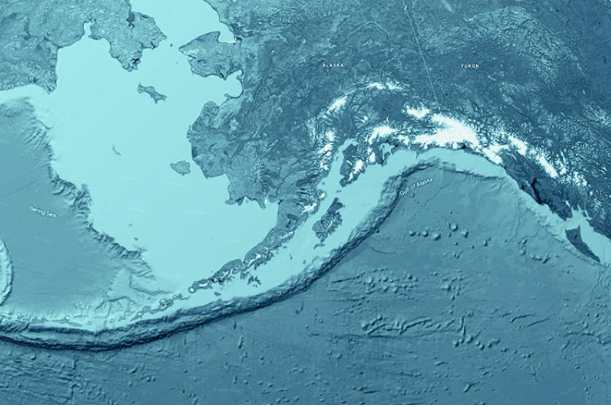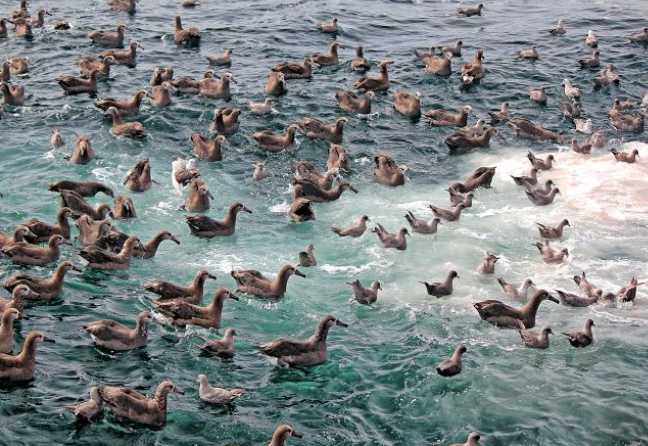With assistance from Alaska Sea Grant, the North Pacific Fishery Management Council recently adopted what some are calling a groundbreaking ecosystem management plan for the Bering Sea that incorporates local and traditional knowledge.
It’s the first time that local and traditional knowledge (LTK) has been formally taken into account in the regional council’s management plan for fisheries, said Davin Holen, assistant professor at the University of Alaska Fairbanks College of Fisheries and Ocean Sciences and Alaska Sea Grant’s coastal community resilience specialist.
“This is a big step forward,” Holen said.
The North Pacific Fishery Management Council is one of the eight councils in the United States responsible for managing the nation’s coastal fisheries. It has used an ecosystem approach for years but has recently been working to improve it by including factors such as climate change impacts and LTK.
Holen, a cultural anthropologist, said the North Pacific Council understood the importance of using an ecosystem approach when considering the Bering Sea, one of the world’s most productive oceans that is undergoing massive changes related to warming air and sea temperatures.
The council developed a new model, the Core Bering Sea Fisheries Ecosystem Plan, consisting of five strategic modules. The council began work on two modules, evaluating the impacts of climate change on fish species, and beginning to use LTK in management.
Three additional modules will be addressed later: gap analysis of Bering Sea management with best practices, interdisciplinary conceptual models for the Bering Sea ecosystem, and aligning and tracking council priorities with research funding opportunities.
In addition to Holen, many other organizations and individuals participated in the development of the plan, including Julie Raymond-Yakoubian, social science program director at Kawerak, Inc., a regional tribal consortium serving 20 federally recognized tribes in the Bering Strait region.
Raymond-Yakobian played a significant role providing comments and participating in meetings, as well as consolidating comments from communities in the region.
“Julie’s work was incredibly helpful especially with the traditional knowledge and subsistence sections where we struggled to adequately represent these topics for such a large region and to do so in a culturally appropriate manner, while still balancing the needs of the council,” Holen said.
Raymond-Yakobian collaborated with Aleut Community of St. Paul, Association of Village Council Presidents, Tanana Chiefs Conference, Bristol Bay Native Association, Bering Sea Elders Group, and the City of St. George. Some of these organizations represent dozens of tribes, while others are a single tribe (St. Paul) or community (St. George).
“We believe that core document, as well as the forthcoming action modules, will bring a greater voice to tribal communities through the incorporation and use of their traditional knowledge and other information,” Raymond-Yakobian said. “The plan is a recognition and acknowledgment by the council that tribes and tribal information are valuable and relevant to contemporary fishery management in the Bering Sea.”
Source: Alaska Sea Grant
[content id=”79272″]







